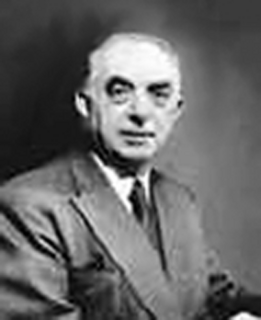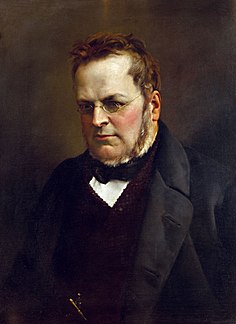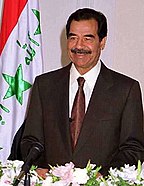Parliamentary elections were held in North Korea on 25 November 1967. Only one candidate was presented in each constituency, all of which were selected by the Workers' Party of Korea, although some ran under the banner of other parties or state organisations to give an appearance of democracy. Voter turnout was reported to be 100%, with 100% voting in favour of the candidates presented.

Parliamentary elections were held in Iraq on 9 June 1954, although they were delayed until 14 June in some areas due to social upheaval. The Constitutional Union Party remained the largest party, winning 50 of the 135 seats, although 53 were won by independents. Despite the government creating obstacles for opposition candidates, they were described as "undoubtedly the freest elections in Iraqi history" in 2001.

Parliamentary elections were held in Iraq on 20 June 1980, the first since 1958. The elections were contested by around 860 candidates, and saw the Ba'ath Party win 187 of the 250 seats. Voter turnout was approximately 80%.

Parliamentary elections were held in Iraq on 20 October 1984. The elections were contested by 782 candidates, and saw the Ba'ath Party win 183 of the 250 seats.

Parliamentary elections were held in Iraq on 1 April 1989, having originally been scheduled for 31 August 1988, but postponed due to the Iran–Iraq War. The elections were contested by 921 candidates, and saw the Ba'ath Party win 207 of the 250 seats.

Parliamentary elections were held in Iraq on 27 March 2000. The elections were contested by 522 candidates, including 25 women. Whilst there were a number of candidates, all independent candidates were nominally loyal to the Ba'ath Party, and the rest of the candidates were party members.

Parliamentary elections were held in Iraq on 5 May 1958. It was the last election in monarchical Iraq. Most political parties had been dissolved in 1954. The main opposition coalition, the National Union Front, decided to boycott the elections. Candidates supportive of the government won 140 of the 145 seats, whilst independent candidates won the remaining five. The new parliament lasted two months only. On 14 July the monarchical government was overthrown in a military coup.

Parliamentary elections were held in Kuwait on 20 October 1992. A total of 275 candidates contested the election, which saw independents win the largest number of seats, and candidates opposed to the government win a total of 31 seats. Voter turnout was 83.2%.

Parliamentary elections were held in Bulgaria on 8 June 1986. The Fatherland Front, dominated by the Bulgarian Communist Party, was the only organisation to contest the election; all candidate lists had to be approved by the Front. The Front nominated one candidate for each constituency. Of the 400 candidates 276 were members of the Communist Party, 99 were members of the Bulgarian Agrarian National Union and the remaining 25 were unaffiliated. Voter turnout was reportedly 99.5%.

Parliamentary elections were held in Bulgaria on 30 May 1976. The Fatherland Front, dominated by the Bulgarian Communist Party, was the only organisation to contest the election; all candidate lists had to be approved by the Front. The Front nominated one candidate for each constituency. Of the 400 candidates 272 were members of the Communist Party, 100 were members of the Bulgarian Agrarian National Union and the remaining 28 were unaffiliated. Voter turnout was reportedly 99.9%.

Parliamentary elections were held in Bulgaria on 27 June 1971, the first held under the new Zhivkov Constitution, which had been approved in a referendum held a month earlier. The Fatherland Front, dominated by the Bulgarian Communist Party, was the only organisation to contest the election; all candidate lists had to be approved by the Front. The Front nominated one candidate for each constituency. Of the 400 candidates 268 were members of the Communist Party, 100 were members of the Bulgarian Agrarian National Union and the remaining 32 were unaffiliated. Voter turnout was reportedly 99.9%.

Parliamentary elections were held in Bulgaria on 24 December 1939, although voting continued in some areas into January 1940. The elections were officially held on a non-partisan basis with the Bulgarian Agrarian National Union and Bulgarian Communist Party banned, and in a process tightly controlled by Tsar Boris III, by then the real power in the country. However, candidates representing parties did contest the elections. Pro-government candidates won a majority of seats. Voter turnout was 67.2%.

General elections were held in Italy on 27 January 1861, with a second round on 3 February. The newly elected Parliament first convened in Turin on 4 March 1861, where, thirteen days later, it declared the unification of the country as the Kingdom of Italy.

General elections were held in Italy on 29 October 1882, with a second round of voting on 5 November. The "ministerial" left-wing bloc emerged as the largest in Parliament, winning 289 of the 508 seats.

Parliamentary elections were held in Portugal on 30 October 1938. The country was a one-party state at the time and the National Union was the only party to contest the elections, with no opposition candidates allowed to run.

Parliamentary elections were held in Portugal on 1 November 1942. The country was a one-party state at the time and the National Union was the only party to contest the elections, with no opposition candidates allowed to run.

Parliamentary elections were held in Romania on 2 March 1969. The Front of Socialist Unity, which had been formed a year earlier to replace the People's Democratic Front, was the only organization that contested the election; no prospective candidate could run for office without the Front's approval. Like the People's Democratic Front, the Front of Socialist Unity was dominated by the Romanian Communist Party. The Front won all 465 seats in the Great National Assembly.

Parliamentary elections were held in Romania on 9 March 1975. The Front of Socialist Unity, dominated by the Romanian Communist Party and including other mass organisations, was the only organisation that contested the election. No prospective candidate could run for office without the Front's approval. The Front won all 349 seats in the Great National Assembly.

Parliamentary elections were held in Romania on 9 March 1980. The Front of Socialist Unity and Democracy, dominated by the Romanian Communist Party and including other mass organisations, was the only organisation that contested the election. No prospective candidate could run for office without the Front's approval. The Front won all 369 seats in the Great National Assembly.

Parliamentary elections were held in Romania on 17 March 1985. The Front of Socialist Unity, dominated by the Romanian Communist Party and including other mass organisations, was the only organisation that contested the election. No prospective candidate could run for office without the Front's approval. The Front won all 369 seats in the Great National Assembly. These would be the last single-party elections held in Romania; the Communists would be overthrown four years later.












